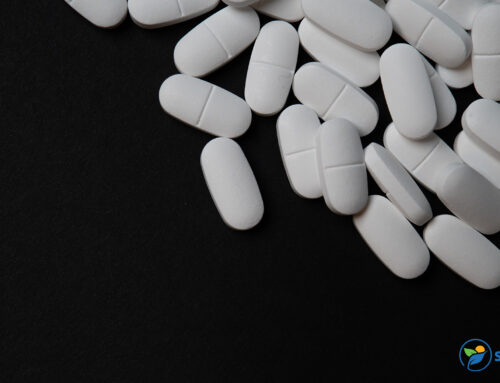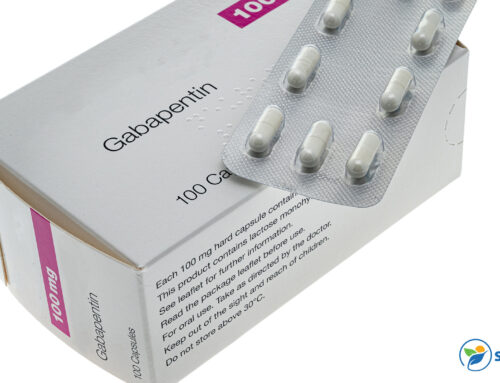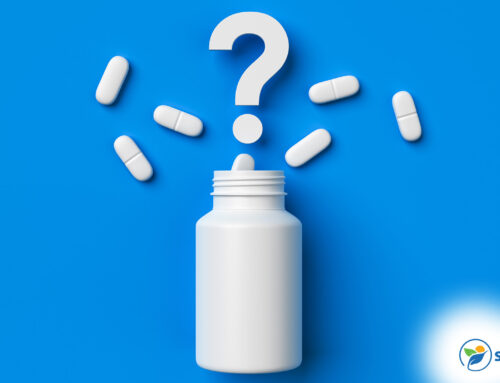Adderall, along with other ADHD medications, is prescribed in increasing amounts in the United States — so much so that in October 2022, the FDA announced a shortage. But like many drugs that are available legitimately to treat medical issues, Adderall can be abused. If you or a loved one take Adderall, you may be concerned that with the number of people misusing it your employer may be looking for it when conducting drug tests. Many organizations now routinely test employees for a variety of substances, whether for safety reasons or out of concern for their employees’ welfare.
So, do you need to be worried about drug tests finding Adderall? And how long does Adderall stay in your system? In this article, we aim to answer these questions and others you may have about this medication.
What is Adderall?
Adderall is the brand name for a combination drug containing amphetamine and dextroamphetamine. It’s most commonly used to treat the symptoms of ADHD but also in the treatment of narcolepsy, helping patients to stay awake during the day. As a stimulant, it can increase your ability to concentrate, pay attention, control behavioral issues and improve your organizational skills.
However, as a stimulant, Adderall is open to misuse. For example, it’s commonly used by students cramming for exams so they can stay awake and concentrate for longer. Others take it to get the “buzz” that can accompany an Adderall high.
How Long Does Adderall Stay in Your System
As Adderall is taken orally, it’s absorbed through the digestive system before being broken down in the liver and finally leaving your system in your urine. Since it’s absorbed throughout your body and into all tissues, there are several measurements of how long it will be detectable, depending on what’s being tested.
How long does Adderall stay in your blood?
Adderall can be detected via a blood test for up to 46 hours after your last use. This is the most rapid way to detect Adderall after use as it appears in the blood very quickly.
How long does Adderall stay in urine?
Adderall levels in urine tests are typically higher than in other tests since it passes out of your system via urine. It remains detectable in urine for three to four days.
How long can Adderall be detected in your saliva?
Tests can detect Adderall in your saliva for between 20 and 50 hours after your last use.
Can Adderall be detected in hair?
Yes, Adderall can be detected in hair samples. This is an uncommon method of testing but it can detect the drug for up to three months after your last use.
What Do Drug Tests Typically Look For?
So, we’ve established that there are several methods of detecting Adderall, but should you be worried about these tests being run as a matter of course? The most widely used drug test method is the 12-panel test, which can vary but usually tests for the following 12 substances:
- Amphetamine (AMP)
- Cocaine (COC)
- Marijuana (THC)
- Phencyclidine (PCP)
- Methamphetamine (mAMP or MET)
- Barbiturates (BAR)
- Benzodiazepines (BZO)
- Buprenorphine (BUP)
- Methadone (MTD)
- Oxycodone (OXY)
- Morphine (MOP)
- Ecstasy (MDMA)
If you don’t see Adderall on this list, you may think you’re in the clear. However, remember what Adderall is: one of its main active ingredients is amphetamines, so you will test positive for this drug. For this reason, if you’re using Adderall as a prescription medication, you should declare this ahead of any tests. You’ll usually be asked to prove that your use is legitimate by providing a prescription as evidence. However, there will usually be further investigation.
Once you’ve tested positive for amphetamine use, further tests will be done. This will show clearly that your positive result is from Adderall, as the test results will vary from other sources such as street meth or other illicit amphetamine variants. Some street drug users believe they can game the tests by obtaining an Adderall prescription; further tests always uncover their deception.
Has Your Adderall Use Become Problematic?
Adderall is a perfectly legitimate drug to use if you have a prescription to treat ADHD or narcolepsy and you’re using it as per your physician’s directions. However, if you find yourself trying to evade the detection of Adderall or any other drug, this might be an indication that something is wrong.
In addition to asking yourself questions such as “how long does Adderall stay in urine?”, other signs that your use may have crossed the line into abuse or addiction include:
- Lying to friends and family about how much Adderall you are taking
- Using deception to obtain more of the drug than your doctor has recommended
- Impulsive behavior
- Relationship problems
- Socializing less than you used to
- A decline in personal hygiene
- Excessive weight loss
- Exhaustion
- Sleeping for long periods
Along with these problems, severe and long-term Adderall abuse can lead to many health problems, including:
- Mental health issues. Adderall works on the brain and can alter dopamine levels, leading to issues such as paranoia, anxiety, depression, anger and psychosis.
- Personality changes. Long-term abuse can cause significant personality changes, which can become permanent.
- Heart problems. Adderall raises your blood pressure, placing extra stress on your heart. Abuse can leave you more susceptible to heart attacks, strokes, abnormal heart rhythms, coronary disease and sudden death.
- Circulation problems. Some users find that Adderall use can result in circulation problems, leading to symptoms such as cold extremities, skin color changes, unexplained pain and the appearance of unexplained wounds. Any of these symptoms should be reported immediately to your doctor.
Getting Help With Adderall Abuse or Addiction
As with many other stimulants, Adderall can be highly addictive. When you stop taking it, you can become lethargic and feel ill, and experience a whole range of withdrawal symptoms. As many of these symptoms can be severe, it’s always a good idea to consult medical professionals before attempting to quit Adderall.
At Sunlight Recovery, we can assist with medical detox and a full range of substance abuse treatments, all administered by trained professionals. So if you or a loved one think you may have a problem with abuse or addiction, don’t hesitate to contact us today and start on the road to a healthy, clean and sober life.






